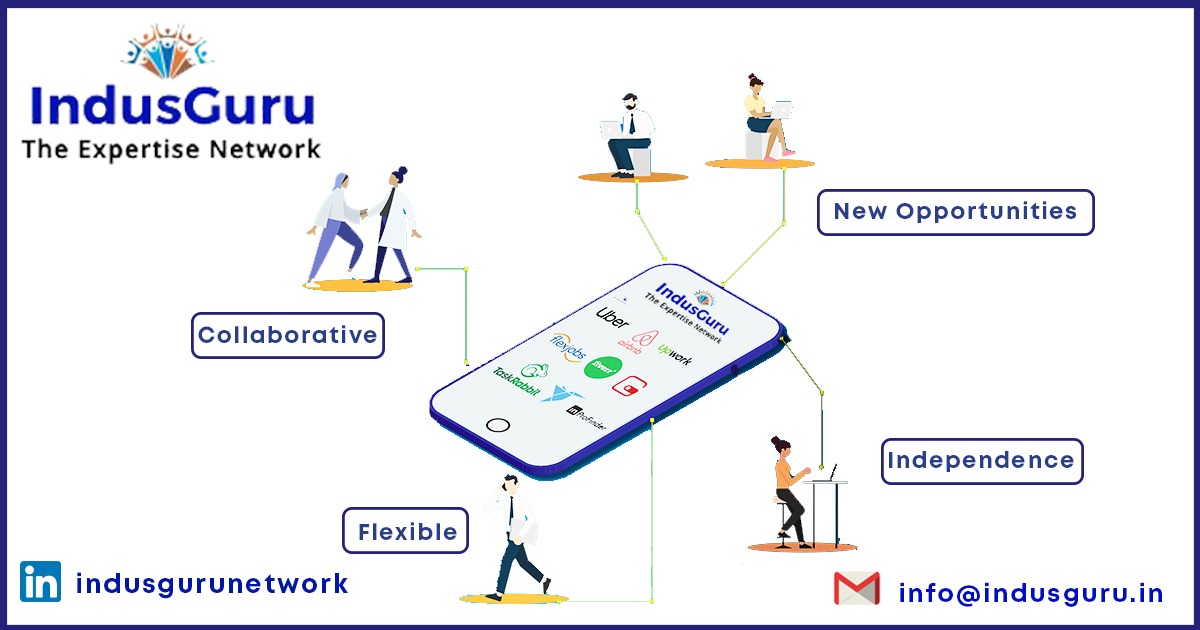As traditional employment models continue to shift, more and more professionals are embracing the flexibility and freedom that comes with the professional gig economy. From freelancers and independent consultants to specialised talent seeking project-by-project opportunities, the rise of digital platforms has created an ecosystem where organisations and professionals connect such as IndusGuru.
But is the professional gig economy the future of work? If Yes, then How? For professionals, the professional gig economy offers the chance to work with a group of organisations, gain diverse experience, and develop new skills. The flexibility of this model allows workers to set their schedules, avoid the burnout often associated with traditional work models, and balance their professional and personal lives. Organisations, too, can benefit from the professional gig economy. By engaging professionals on a project-by-project basis, companies can access specialised talent, gain greater flexibility in staffing, reduce overhead costs, and improve their bottom line. Despite the benefits, some have questioned the sustainability of the gig economy, including concerns about job security, benefits, and protection for gig workers. While these are valid concerns, organisations and platforms are increasingly aware of the need to balance flexibility and the welfare of workers. As the world of independent consulting continues to evolve, it is evident that the professional gig economy is here to stay.
The Path to Flexibility and Success in the Future of Work
As professionals look to embrace the freedom and flexibility that this model offers, they must stay abreast with the latest trends and developments. For organisations seeking to tap into the benefits of the professional gig economy, it’s crucial to make the right choices be it partners or platforms that align with their unique needs. The professional gig economy offers a wide range of benefits for both professionals and organisations. As the future of work continues to take shape, it is apparent that the professional gig economy will play a vital role in shaping how we work. By balancing the advantages of flexibility with the need to ensure protections and benefits for gig workers, we can create a sustainable and equitable future of work that benefits everyone involved.
